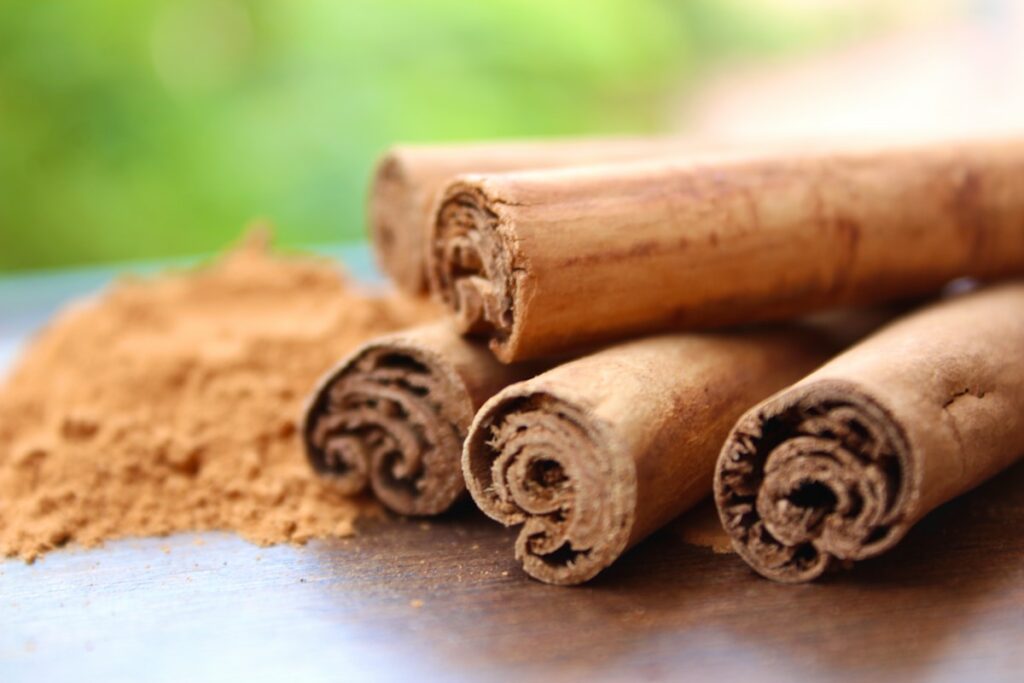Is Cinnamon just Scent and Spice? 8 Evidence-Based Metabolism Benefits

Cinnamon is not just an aromatic tickle to our senses in the kitchen or a baked treat at a café. This spice, derived from the inner bark of trees classified under the genus Cinnamomum, has enriched our plates and palates for thousands of years. But, is it just an age-old culinary spice? Definitely not. Researchers are unveiling its potential health benefits and its role in refining metabolism.
“Cinnamon is rich in antioxidants and other beneficial compounds. Some research suggests that it may help you manage blood sugars, protect against heart disease, and reduce inflammation.”– Medically reviewed by Amy Richter, RD, Nutrition — By Joe Leech, MS
Inside the World of Cinnamon’s Scent and Spice
The chronicle of cinnamon dates back to the cradle of ancient civilisations. A treasure trove in Egyptian texts as old as 2000 BCE, it found application in mummification and as incense. Rome and Greece regarded cinnamon as a wealth symbol used in religious ceremonies. During the Middle Ages, its demand soared in Europe, with prices comparable to gold.
Within those tiny cinnamon sticks reside an assortment of bioactive compounds like cinnamaldehyde, cinnamic acid, and derivative cinnamates. Notably, cinnamaldehyde revs up its flavour and scent besides flaunting antioxidant and anti-inflammatory traits. Further, compounds like eugenol and coumarin contribute to cinnamon’s speculated health effects.
Here are eight medical benefits associated with cinnamon:
- Blood Sugar Regulation: Cinnamon has shown promise in helping to regulate blood sugar levels by improving insulin sensitivity and increasing glucose uptake by cells. This may be particularly beneficial for individuals with diabetes or insulin resistance.
- Antioxidant Properties: Cinnamon is rich in antioxidants, which help protect cells from damage caused by free radicals. These antioxidants may play a role in reducing the risk of chronic diseases, including cancer and neurodegenerative disorders.
- Heart Health: Some studies suggest that cinnamon may have a positive impact on heart health by lowering levels of LDL (bad) cholesterol and triglycerides, while also increasing HDL (good) cholesterol. These effects may help reduce the risk of heart disease and stroke.
- Anti-inflammatory Effects: Cinnamon contains compounds with anti-inflammatory properties that may help reduce inflammation in the body. Chronic inflammation is linked to various health problems, including arthritis, cardiovascular disease, and certain cancers.
- Antimicrobial Activity: Cinnamon has been found to exhibit antimicrobial properties, which may help inhibit the growth of bacteria, fungi, and viruses. This can be particularly useful in fighting off infections and supporting overall immune function.
- Improved Cognitive Function: Preliminary research suggests that cinnamon may have neuroprotective effects and could potentially help improve cognitive function and memory. Further studies are needed to fully understand this benefit.
- Digestive Health: Cinnamon has been traditionally used to aid digestion and relieve gastrointestinal discomfort. It may help reduce bloating, gas, and indigestion, as well as promote overall gut health.
- Potential Weight Management: While more research is needed, some studies suggest that cinnamon may help support weight loss by increasing metabolism and reducing appetite. Incorporating cinnamon into a balanced diet and exercise routine may aid in achieving and maintaining a healthy weight.
It’s important to note that while cinnamon offers several potential health benefits, it should be consumed as part of a balanced diet and lifestyle. As with any supplement or herbal remedy, it’s advisable to consult with a healthcare professional before making significant changes to your diet or treatment plan.
Cinnamon Boosting Metabolism
The spotlight is currently on cinnamon’s role in safeguarding metabolism, which majorly determines how swiftly the body burns calories. The stride has been promising. A Journal of Nutritional Science and Vitaminology research in 2012 made headway by revealing how cinnamon supplementation significantly improved glucose metabolism in rats on a high-fat diet.
Meanwhile, another 2010 study from the Journal of Diabetes Science and Technology found that cinnamon extract could lower fasting blood glucose levels in those with type 2 diabetes.
Now, researchers are charting the course by which cinnamon impacts metabolism. They believe it might perk up insulin sensitivity, ensuring more effective glucose transfer to cells, and hence, better energy metabolism. Some evidence also suggests that cinnamon could switch on specific metabolism and thermogenesis enzymes (the calorie burning mechanism where the body produces heat).
Cinnamon Daily
Savvy and delicious – that’s how cinnamon throws itself into the flurry of our meals. You could sprinkle it on oatmeal, sway it into smoothies, or use it as a spice in tasty savoury dishes. Mind you, it might not directly shrink you down, but as part of a balanced diet and jazzy lifestyle, it could back your metabolic health.
Cinnamon – its rich history united with its chemical complexity continues to fascinate scientists. While further research is afoot to decode its interplay with our bodies, there’s ample suggestion that cinnamon could be a crucial player in metabolism regulation and glucose management. So whether you relish it in a mouth-watering culinary spread or take it as a supplement, cinnamon could be the answer to a healthy metabolism.
Do you want to share your story and inspire our readers ? Know that YOUR EXPERTISE is paving the way for a brighter, happier future.



